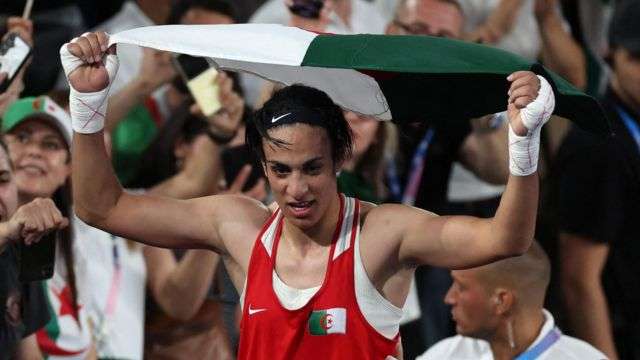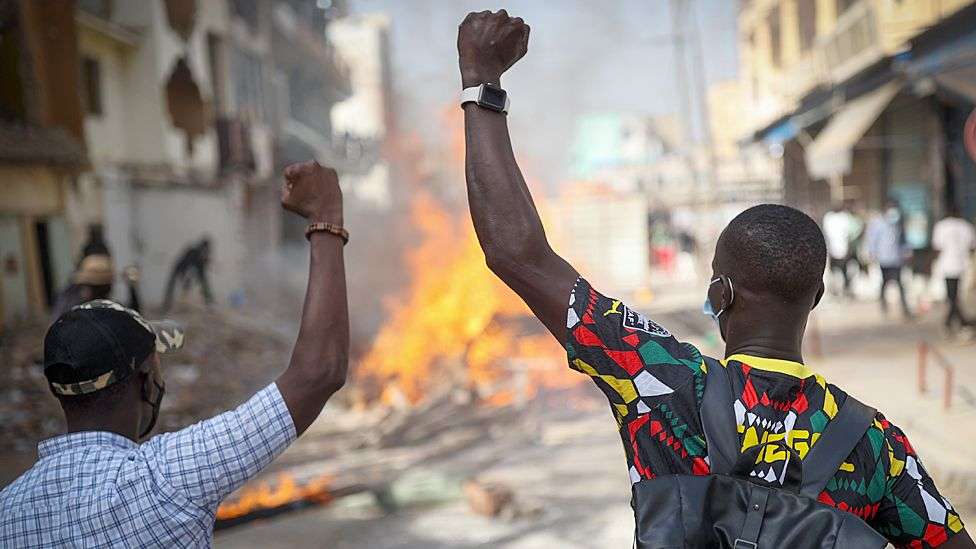Imane Khelif won Olympic women's boxing gold a year after
being disqualified from the World Championships for reportedly failing a gender
eligibility test.
The Algerian, amid a controversy that has overshadowed the
boxing events in Paris, beat Chinese world champion Yang Liu by unanimous
decision to win the welterweight division.
The 25-year-old was roared to the ring by swathes of
Algerian support - who waved their green, white and red flags - and dominated
the fight.
She was showboating at the bell, dancing while already
knowing the victory was hers, before the pair shared a warm embrace.
"It is my dream. I am very happy," Khelif told the
OceanNewsUK. "It is fantastic. Amazing.
"Eight years of work, no sleep. I want to thank all of
the people in Algeria.
"I am very happy for my performance. I am a strong
woman."
When the result was confirmed, Yang raised her opponent's
arm into the air - a sharp contrast to the scenes after Khelif's opening fight
against Italy's Angela Carini - and Khelif was then carried around a jubilant
arena on the shoulders of her coach.
Lin Yu-ting, the second boxer banned last year under the
same ruling, will fight in her final on Saturday but Khelif's Games - one of
the most extraordinary and controversial in recent memory - ended with her
standing on top of the podium.
She was applauded by all three of her fellow medallists and
there were tears in her eyes as the Algerian anthem was played.
How did we get here?
Carini abandoned in Khelif's opening bout after 46 seconds,
saying she had to "preserve" her life.
The Algerian, whose previous best result was a world silver
in 2022, followed that with convincing, unanimous-decision victories to reach
this stage.
This was expected to be a tougher bout - Yang represented a
step-up in class - but it proved to be another clear victory.
Yang was due to face Khelif in the final of last year's
World Championship - a title Wang went on to win - but Khelif was disqualified
by the International Boxing Association (IBA), meaning they did not meet.
The IBA said Khelif and Taiwanese boxer Lin Yu-ting, who
contests her final on Saturday, "failed to meet the eligibility criteria
for participating in the women's competition, as set and laid out in the IBA
regulations".
The International Olympic Committee (IOC), which runs the
boxing events at the Olympics, has allowed the pair to compete and strongly
criticised the IBA, insisting Khelif and Lin were "born and raised as
women".
President Thomas Bach said earlier on Friday the
organisation "does not like the uncertainty" but suggested there is
not a "scientifically solid system" to "identify men and
women".
Many of the pair's opponents and coaching teams have been
unhappy with their involvement, however, indicating a level of discontent
behind the scenes.
Carini said it "was not right" immediately after
her loss to Khelif, although she later apologised for how she handled the
moments after the fight. Her coach said he had advised her not to fight, saying
people had told her not to "fight a man".
Before the next round, opponent Anna Luca Hamori from
Hungary said: "I don't think it is fair", while the Hungarian Boxing
Association protested about Khelif's inclusion. After the fight Hamori wished
Khelif good luck.
Neither her semi-final opponent, Janjaem Suwannapheng, nor
the Thailand's boxer team made any direct comment on the controversy, though
Suwannapheng said after the fight: "She is a woman but very strong."
Two of Lin's opponents, meanwhile, have made 'X' gestures -
said to be intended to represent female chromosomes - in the ring after defeat.
Svetlana Kamenova Staneva left the arena saying "no,
no, no" and made the 'X' sign.
Before the fight, the Bulgarian had said it was "not
good for boxing", while her boxing federation said they
"strongly" opposed Lin and Khelif’s participation in Paris 2024.
After Lin's semi-final victory over Esra Yildiz Kahraman,
the Turkish fighter also made the 'X' sign in the centre of the ring.








